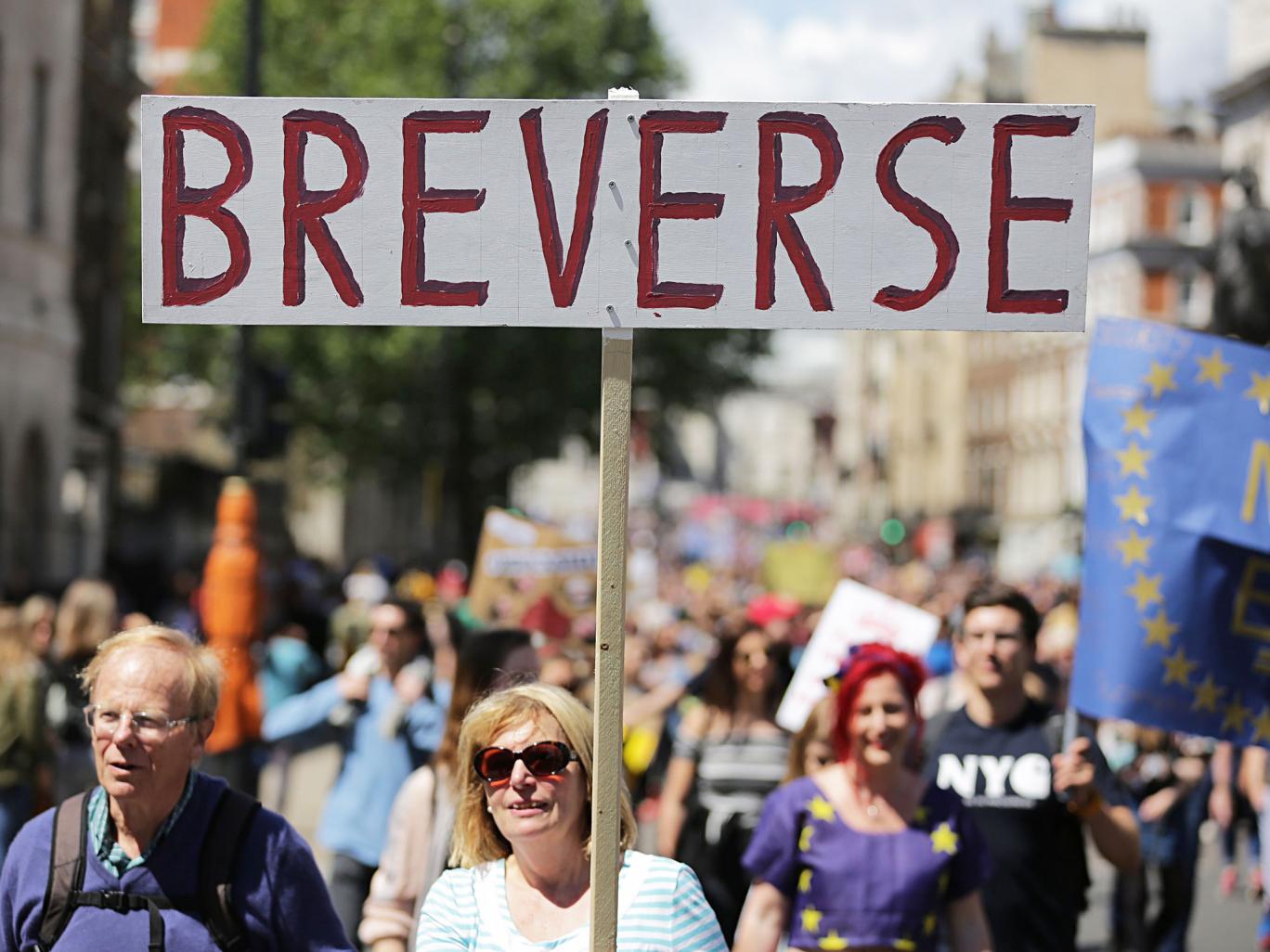There are whispers in Whitehall about a ‘soft landing’ Brexit

I can see the opinion poll headline now: 60 per cent of people claim they voted Remain in the 2016 referendum, with only 40 per cent honest enough to admit they backed Leave. The problem for those who still count themselves Remainers is that this headline is very unlikely to appear before we leave the EU in March 2019.
Hindsight is a wonderful gift. When Tony Blair joined the US-led invasion of Iraq in 2003, two out of three people supported it. But that is not how many remembered it by 2015, when 43 per cent insisted they had opposed the war at the time and only 37 per cent had supported it, according to YouGov. By then, the conflict was deeply unpopular, with twice as many people believing it had been wrong than right.
I suspect something similar will happen on Brexit, although much will depend on the state of the economy. The disaster predicted by Project Fear hasn’t happened yet, but there are some worrying signs. “Both sides in the referendum campaign are still re-running it, desperate to be proved right,” one cabinet minister told me ruefully.
When we can finally judge, what will matter is what the public thinks. If they blame an economic slowdown on leaving the EU, a genuine sense of Regrexit could take hold. But when? Despite the hopes of those dubbed Remainiacs by their opponents, the UK will probably have left by the time this happened. Today’s polls show a nation still split down the middle on Brexit. Some Remainers now think, to cite Theresa May’s latest mantra, we should “just get on with it”.
However, there is a ray of hope for the remaining Remainers: the transitional deal towards which the Cabinet is heading would keep the UK very close to the EU for another two or three years after 2019. So there would be a longer period for Bremorse to set in. (I am not saying it will. I hope the economy doesn’t suffer, but it might).
This is one reason why some hardline Brexiteers suspect Chancellor Philip Hammond’s motives in pushing for a transitional deal. They would prefer a clean break in 2019. If the EU talks broke down and the UK left without any agreement, there would be no hugging the EU close and so surely no way back.
I don’t think the Chancellor is hatching a wicked plot to keep the UK in the EU; he accepts we will leave the single market and customs union in 2019, even as he wants to retain their benefits for up to three years. But some Whitehall officials speak quietly of a “soft landing” that would allow the UK to keep its long-term options open. Even after the transitional period ended in 2021 or 2022, the UK would stick close to the EU market and copy its regulations (with no influence when they were drawn up). Over time, the UK could decide to diverge from the EU if the benefits of trade deals with non-EU countries became clear (although the Treasury remains to be convinced). The advantage of what officials call this “parallel lines” approach would be that the UK would suffer less of an economic hit while new trade deals were negotiated. Remember: the EU-Canada agreement took seven years.
If trade deals did not flow, there might be one last chance for Remainiacs to push for a return to the EU. The election due in 2022 could play a part, just as this year’s is now forcing May to soften her hard Brexit. It is not impossible that Parliament would vote for a second referendum, if there were public support for one.
“Rejoin would be a much more difficult message than Remain,” admitted one prominent pro-EU campaigner. But the demographics might help; last year, seven out of 10 in the 18 to 24 age group backed Remain, while almost two in three 65-year-olds voted Leave. The turnout among younger voters might well be higher next time.
The Liberal Democrats, lonely and squeezed out in June, might find some new friends. Labour’s stance on Brexit is confusing to put it mildly – but crucially, the party has retained the flexibility to adopt stronger opposition if the public mood shifts.
Foresight is a wonderful thing too and much of this might never happen. Politicians may remain too frightened of the charge of overturning last year’s referendum. And yet the June election has made it more possible than it was by opening the door to a longer transition. In the end, the UK’s future will be decided by voters rather than politicians who will dare to move only if the public does. Perhaps more of them should lead rather than follow.